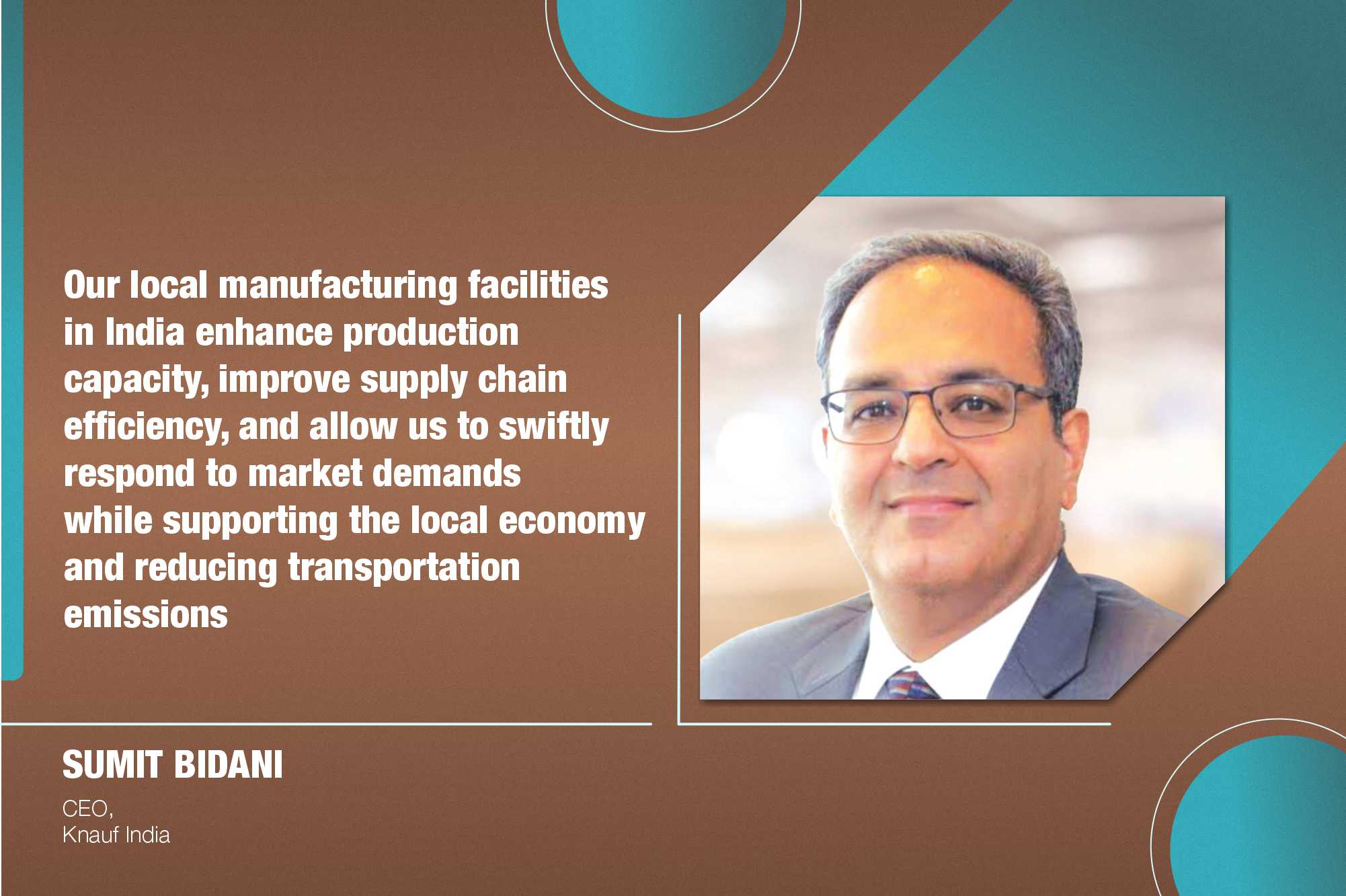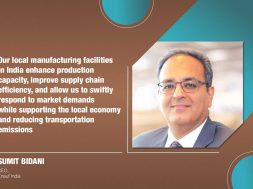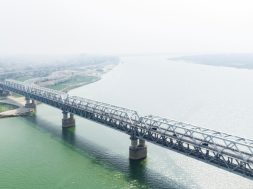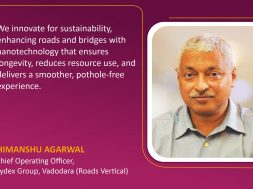Knauf streamlines with eco-friendly solutions in the construction industry

“Our local manufacturing facilities in India enhance production capacity, improve supply chain efficiency, and allow us to swiftly respond to market demands while supporting the local economy and reducing transportation emissions.” Sumit Bidani, CEO, Knauf India
This interaction with Knauf India emphasises the role of their local manufacturing facilities in enhancing production capacity, improving supply chain efficiency, and supporting the local economy while reducing transportation emissions.
Can you provide an overview of Knauf’s innovative approaches and sustainable practices and how its global presence and local manufacturing facilities in India contribute to its success?
Knauf is committed to driving innovation and sustainability in the construction industry. Our innovative approaches include the development of eco-friendly products like the Aquapanel and high-performance drywall solutions, which result from our extensive R&D efforts. We prioritise sustainability through using recyclable materials, energy-efficient manufacturing processes, and a strong focus on reducing our carbon footprint.
Our presence in over 80 countries enables us to leverage global expertise and introduce advanced technologies and sustainable practices. In India, local manufacturing facilities enhance production capacity, supply chain efficiency, and responsiveness to market demands. This reduces transportation emissions and costs, supports the local economy through job creation, and ensures regional standards and preferences compliance.
Can you share your insights on the factors driving the growing trend of green buildings in India and how Knauf India contributes to this transformation?
Increased environmental awareness, government regulations, and the economic benefits of energy-efficient buildings drive India’s trend towards green buildings. Government initiatives like the Energy Conservation Building Code (ECBC) and support from the Green Building Council of India (GBCI) accelerate this adoption. Knauf India supports this transformation with eco-friendly products like plasterboards and Danoline Acoustic Ceilings, which enhance energy efficiency and indoor air quality. Through our Knauf Gypsum Academy, we train construction professionals in sustainable building practices, meeting the growing demand for green buildings.
What sustainable practices has Knauf India implemented, and how do you anticipate the growth of such practices in the Indian construction industry in the coming years?
Knauf India is committed to sustainability, reducing Scope 1 and Scope 2 emissions, optimising water consumption, and minimising waste. Our efforts include process and recipe optimisation, increased use of renewable energy, investment in energy-efficient technology, utilisation of recycled materials, and innovative water reduction strategies. We also localise key raw materials to reduce Scope 3 emissions and achieve zero process waste by recycling 100 percent. In the Circular Economy, we use synthetic gypsum from sulfur emissions in coal-based power plants to make gypsum boards. Additionally, we conduct life cycle assessments (LCA) to ensure our products meet sustainability criteria. As the Indian construction industry evolves, we expect a significant increase in sustainable practices driven by stricter regulations, consumer demand, and economic benefits.
How is Knauf India navigating the construction industry’s economic, social, and environmental challenges to build resilient infrastructure?
Knauf India addresses construction industry challenges through economic resilience, social responsibility, and environmental sustainability. We ensure financial stability by diversifying our product portfolio, optimising the supply chain, and managing costs. We engage with local communities to create jobs, support suppliers, and invest in community development. Our eco-friendly practices reduce our carbon footprint and promote sustainable materials, contributing to resilient infrastructure.
What are some significant challenges Knauf India has faced in introducing new construction materials to the Indian market, and how have you addressed these challenges?
Introducing new construction materials in India poses challenges like market acceptance, regulatory compliance, technical hurdles, skill development, and supply chain management. We address these by educating stakeholders through marketing campaigns and technical seminars, ensuring regulatory compliance with rigorous testing, overcoming technical challenges with a dedicated R&D team, conducting training programs for skill development, and optimising supply chain processes with strategic partnerships. These efforts help us successfully introduce new materials, supporting the growth and modernisation of the Indian construction industry.
For more details , Visit : https://knauf.com/en
Cookie Consent
We use cookies to personalize your experience. By continuing to visit this website you agree to our Terms & Conditions, Privacy Policy and Cookie Policy.










